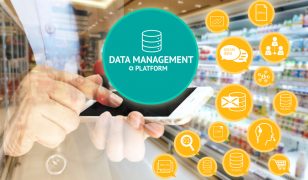The best business owners are the ones who are never content. If you’re a successful small business owner, chances are you’ve already made the switch to social media as a way to market your product or service and build a loyal customer base. But that’s not enough to truly optimize the possible benefits of technology.
Big Data is a term that has come to indicate the transformation of statistical analysis into information and strategies that are useful to someone or something. In the business world, this revolution first took place in the halls of big business, because big-market companies were the only ones who could afford the compilation of the information and the analysts who could take that data and turn that into useful strategies.
Of course, technology has made all of this much easier and cheaper. Suddenly small businesses can play with the big boys, as long as they’re willing to embrace the tools available to them. With that in mind, here are some things to keep in mind if you’re a small business owner who is considering making Big Data work for them.
Information for Everybody
The rapid technological shifts in areas like cloud computing have democratized the usage of Big Data. No longer is this information in the hands of a precious few companies who could strengthen the stranglehold on the market by utilizing it. Now it can be spread across the business landscape, even into the hands of a business operating on a local level. As a small business owner, Big Data is available to you, as long as you’re willing to work with it.
It’s All Laid out for You
It’s one thing to have reams of data at your fingertips; it’s another thing to have to sift through it all. But recent technological advances have created software and apps that do that work for you. Suddenly you can see important information that might never before been privy to you. Learning about the competition, understanding of specific business expenses are reaping the benefits that they’re supposed to reap, projecting how hypothetical changes to the business or even expansion would work out into the future: All of these possibilities are now open to a small business in much the same ways they are open to the giants of industry.
Pinpointing the Customer Base
One of the ways that Big Data can help small businesses the most is by helping them to identify their customer base in ways that have never been conceivable before. As a business owner, that allows for the kind of specific marketing initiatives that will efficiently grow a business. It eliminates the wastefulness of trying to pull in customers that probably don’t belong to your base in the first place. And it provides the opportunity to engage and excite this customer base, creating loyalty that could never have been fostered without the help of Big Data.
Expanding Talent Pool
The old laws of supply and demand very much apply to Big Data. In the past, a select few people even knew what Big Data was, let alone were able to explain it and distill it into useful business information. But as Big Data has exploded, more and more programs in college have become devoted to creating professional analysts who can do just that. That expanding talent pool means that you, as a small business owner, might have the chance to hire an expert that, in previous years, might have been out of your price range. That expert can maximize Big Data’s impact on your business.
Don’t Be Afraid
Any major shift in the business world can seem a bit frightening to a business owner who has been doing things the same way for many years. But those who can’t make the change are doomed to get left behind. Big Data is a black-and-white representation of a business’ strengths and weaknesses, its potential and its limitations. It is also removed from emotional judgments and knee-jerk reactions that can lead to decisions that can harm a business in the short term and down the road. It’s a Big Data world, and it’s time for your small business to start living and thriving in it.









